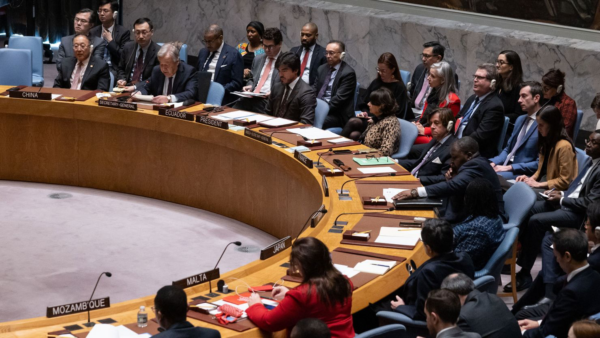UNITED NATIONS, Dec 19 (Reuters) – A United Nations Security Council vote on a bid to boost aid deliveries to the Gaza Strip has been delayed by another day as talks continue to try and avoid a third U.S. veto of action over the two-month long Israel-Hamas war, diplomats said on Tuesday.
The 15-member council was initially going to vote on a resolution – drafted by the United Arab Emirates – on Monday. But it has repeatedly been delayed as diplomats say the UAE and the U.S. struggle to agree on language citing a cessation of hostilities and a proposal to set up U.N. aid monitoring.
When asked if they were getting close to an agreement, U.S. Ambassador to the U.N. Linda Thomas-Greenfield told reporters on Tuesday: “We’re trying, we really are.”
The draft resolution would demand Israel and Hamas allow and facilitate land, sea and air deliveries of aid to and throughout the Gaza Strip and ask the United Nations to monitor humanitarian assistance arriving in the Palestinian enclave.
Diplomats said the United States wants to tone down language that “calls for the urgent suspension of hostilities to allow safe and unhindered humanitarian access, and for urgent steps towards a sustainable cessation of hostilities.”
The United States and Israel oppose a ceasefire because they believe it would only benefit Hamas. Washington instead supports pauses in fighting to protect civilians and allow the release of hostages taken by Hamas.
Washington traditionally shields its ally Israel from any Security Council action. It had already twice vetoed Security Council action since an Oct. 7 attack by Hamas that Israel says killed 1,093 people and saw 240 people taken hostage.
Israel has retaliated against Hamas by bombarding Gaza from the air, imposing a siege and launching a ground offensive. Nearly 20,000 Palestinians have been killed, according to Gaza health officials. U.N. officials warn of a humanitarian catastrophe in Gaza with the majority of the coastal Palestinian enclave’s 2.3 million people driven from their homes.
AID MONITORING
Diplomats said that Washington is also unhappy with a proposal in the UAE draft resolution that asks U.N. Secretary-General Antonio Guterres to establish a monitoring mechanism in Gaza “to exclusively monitor all humanitarian relief consignments to Gaza provided through land, sea and air routes of those states that are not parties to the conflict.”
Limited humanitarian aid and fuel deliveries have crossed into Gaza via the Rafah crossing from Egypt, subjected to monitoring by Israel, but U.N. officials and aid workers say it comes nowhere near to satisfying the most basic needs of Gazans.
Nate Evans, spokesperson for the U.S. mission to the U.N., said on Tuesday: “We believe there needs to be a large increase in humanitarian aid to Gaza, as we have worked to achieve on the ground through our diplomacy. We continue to work constructively with council members on this product.”
On Sunday the Israel-controlled Kerem Shalom crossing into Gaza opened for aid trucks for the first time since the outbreak of war, officials said, in a move to double the amount of food and medicine reaching Gaza.
The U.N. Office for the Coordinations of Humanitarian Affairs said on Tuesday that on Sunday 102 aid trucks and four tankers of fuel had entered Gaza via the Rafah and 79 trucks entered Gaza via Kerem Shalom.
“This is well below the daily average of 500 truckloads (including fuel and private sector goods) that entered every working day prior to 7 October,” it said in a statement.
Earlier this month the 193-member U.N. General Assembly demanded a humanitarian ceasefire, with 153 states voting in favor of the move that had been vetoed by the United States in the Security Council days earlier.
A seven-day pause – during which Hamas released some hostages, some Palestinians were freed from Israeli jails and there was an increase in aid to Gaza – had ended on Dec. 1.
REUTERS


Leave a Reply
You must be logged in to post a comment.